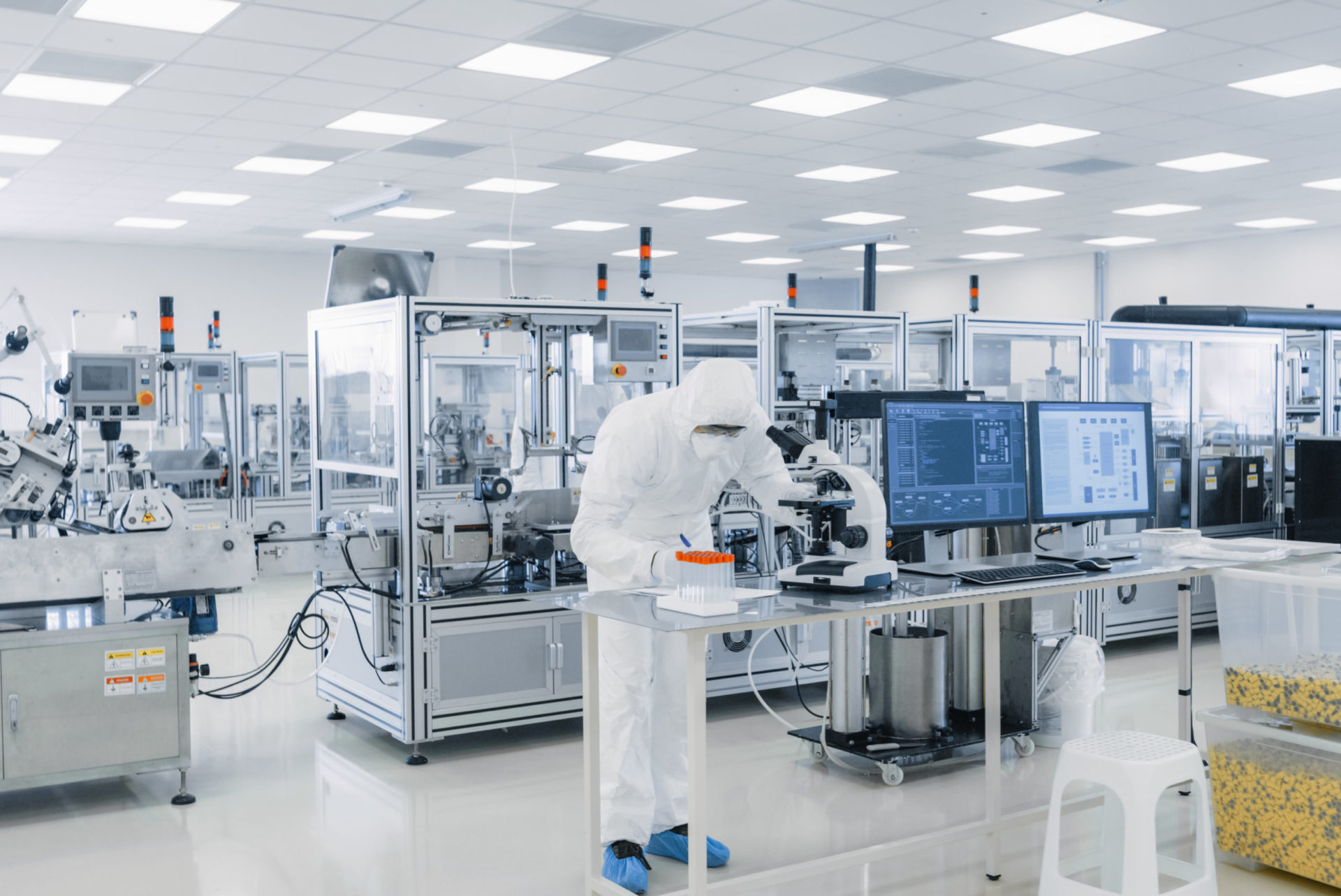Labs and facilities without clean air can experience air pollutants, drug contamination, and numerous other issues. A humid environment can threaten air quality, putting production efficiency, product quality, yield, visual appearance, and shelf-life at risk. Therefore, it is critical to maintain air quality in your pharmaceutical manufacturing facility.
How Moisture Can Threaten Product Quality
Most pharmaceutical products are prone to moisture absorption, which can cause various issues, including physical, enzymatic, microbiological, and biochemical deterioration. This can occur at any stage during the manufacturing process, even before the products are packaged.
Humidity left uncontrolled (whether too low or too high) can lead to:
- Air pollutants
- Contamination of drugs
- Medications drying out
- Tablets becoming sticky
- Tablets crumbling
- Uneven coating on tablets
- Toxicity of products
- Decompositions of formulations
- Caking of chemical compounds
- Shorter shelf life
If you do not have a plan to balance the moisture levels in your facility, the effects will be much more damaging and costly.
Determining the Right Solution for Your Facility
In addition to product quality, climate control is crucial for preserving medical equipment and ensuring worker safety. Unexpected failures due to inadequate climate control can be very costly, resulting in loss of supplies, compromised worker health, and liability to patients’ health. Measuring and identifying the right air quality in your facility for compliance, operational competence, and safety is essential.
When potential customers consult Industrial Drying Solutions, our team focuses on mitigating risk, exposure, and possible failure by customizing a temperature control solution for your facility to maintain a consistent, reliable climate.
Your Humidity Control Solution
There is always a certain amount of water vapor in the air, measured in terms of relative humidity. Outdoor relative humidity directly affects the indoor humidity environment. Moisture-related issues are compounded by infiltration through ceilings, walls, doors, and floors, as well as by the presence of people in the workspace and the production process itself.
Cooling and heating systems should be used in conjunction with desiccant dehumidification technology. Using desiccant dehumidification with air conditioning provides the appropriate levels of humidity and temperature for several areas of the pharmaceutical industry, including:
- Powder milling
- Tablet compression
- Tablet coating
- Glandular extracts
- Manufacturing: effervescent tablets, soft gelatin capsules, cough drops
- Packaging of products
- Refrigerated cold rooms
- Storage: powders, capsules, aluminum foil
- Research: test chambers, diagnostic rooms
Desiccant dehumidification is the perfect solution to remove moisture from the air and prevent pharmaceutical products from humidity or moisture-related issues. IDS offers a wide range of industrial dehumidification units and temperature control equipment. Contact us today to address your humidity control issues.
Whether your problem is seasonal or year-round, IDS can provide a temporary or permanent solution that suits your needs.

